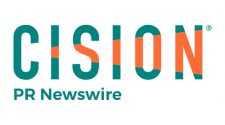Even though health care payment providers have more digital payment options than ever, there still is a tough hurdle to overcome: Patients don’t always trust the medical provider or insurance company to provide accurate bills.
That mistrust leads to delayed or skipped payments. This turns a transaction into a customer service issue — one that can’t be solved by offering mobile or digital payments. But once questions about a bill have been cleared up, it is in the health care provider’s best interest to make a payment option available at that exact moment.
“It’s a very difficult payment to land because of that consumer mistrust,” said Larry Berlin of Chicago-based MSI Consulting Group. “We have looked at venture capitalists for the past several years trying to invest in ways to tackle that problem.”
Medical bills are often inaccurate for various reasons, which compounds the problem, Berlin said.
“People don’t trust the doctor or the insurance company to get it right and they don’t understand the bills,” he added. “But once that bill is agreed to, there is absolutely no reason the payment can’t be done through normal credit card payments or through mobile or a P2P type of payment.”
Payment and patient engagement software provider RevSpring has staked its business model on that premise, advancing multi-channel payment options and boosting customer service to address the difficulty of clearing up billing statement questions.
Livonia, Mich.-based RevSpring, a portfolio company of the equity firm GTCR, acquired Loyale Healthcare this week to bolster its services for enterprise hospital accounts and add a “one bed, one bill” concept to the patient payment experience.
It’s a concept that allows a patient to pay multiple obligations due for a hospital procedure within a single bill, and settle among the various providers involved in the patient care, said Steve Callis, president of payments at RevSpring.
That sort of advancement complements what RevSpring brings to the table already with its account-based format in which patients can manage health care finances, make payments without waiting for a statement, use autopay, choose payment plans, use a popular text-to-pay option, and ease stress by combining hospital and physician billing into one.
To tackle the issues of billing accuracy and trust, RevSpring offers patient pre-service engagement and access, customer service staff to support billing questions and payments in person or over the phone, in live chat portals and through digital payment automation.
“On average, 50% of payments for our clients are made electronically, with patient satisfaction ratings averaging 93%” Callis said. “We also offer merchant services and reconciliation capabilities, solving a common challenge in health care payments (by establishing one vendor).”
Patients generally make a payment one or two hours after receiving a text reminder, and days before they would receive a bill through the mail, Callis added.
“The ability to pay from a stored card with a few clicks, without ever touching a portal, is gaining popularity as well,” he said.
RevSpring has also launched payment data model Vu Predict, which helps the health care provider pinpoint the best option for a patient to pay. It takes into account various factors, including health care needs, to keep the patient informed about current and upcoming bills and to potentially set up a personalized payment program.
JPMorgan Chase saw this trend in consumer health care payments steering toward a multi-channel approach as well. This led it to acquire payments provider InstaMed nearly a year ago.
InstaMed had made its mark in health care payments by embracing the concept that patients should be able to make payment choices in the same fashion they make retail payment decisions.
Others have followed that lead, working to get health care payments on a playing field that patients have seen in all other facets of their lives.
For its part, RevSpring has been working toward this goal of expanded payment platforms and advancing technology since being formed by the merger of Dantom Systems, PSC Info Group and Data Image nearly a decade ago. The company also acquired BestBill, a Phoenix-based billing and payment technology provider, eight years ago to start recreating its payment offerings.
“The business of health care payments has been around for a long time,” said MSI’s Berlin. “If someone comes along who can do it better, there is a lot of room for it.”
Companies seeking to bring health care payments into the digital age have essentially the same goal: Cut down on paper statements and sending bills in the mail. Basically, in a modern mobile age, the thought of writing a paper check and mailing it to pay your doctor is becoming dated.
“The easier it is to pay, the more likely it is that I will pay,” Berlin said. “And that’s what the doctor wants, too. I think it’s a great idea for RevSpring and others to advance this.”
















